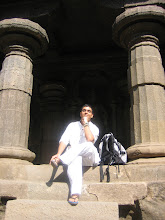
I enjoy the stillness of winter and the vigor of spring and summer but autumn has always been my favorite season. I'd be lying if the traditional North American foods associated with fall didn't play some part in this; pumpkin pie, pomegranates, sweet potato pie, apple cider, pecan pie, etc.
Things are, of course, always changing but autumn seems to announce the seasonal tide in a way that's deeply resonated with me for as long as I can remember. The temperature becomes gradually cooler, the wind crisper, and the moons hazier. As a kid, the excessive free time of summer gave way to the structure and hard work of a new school year. TV shows are resurrected with new episodes and the long daylight of summer gradually gives way to the creeping night of winter.
Seeing and experiencing the changes of autumn tends to make me reflect on the various changes occurring in my own life.
The idea of change, or impermanence (Pali: anicca अनिच्च) can be tricky to grasp but Thich Nhat Hanh, in his classic "The Heart of the Buddha's Teaching" gives a beautiful explanation of impermanence:
If we see impermanence as merely a philosphy, then it is not the Buddha's teaching. Every time we look or listen, the object of our perception can reveal to us the nature of impermanence. We have to nourish our insight into impermance all day long.When we look deeply into impermance, we see that things change because causes and conditions change. When we look deeply into nonself, we see that the existence of every single thing is possible only because of the existence of everything else. We see that everything else is the cause and condition for its existence. We see that everything else is in it.As I mentioned at the beginning, autumn is the season that makes me think of impermanence and one of my favorite songs that makes me think of autumn is Chicane's "Autumn Tactics". Featuring the smooth vocals of Justine Suissa, the song presents a relaxed and introspective look at the changes of autumn. It's one of those songs that can evoke a wide variety of responses and feelings depending on one's mood. Below is the original mix from the classic album "Behind the Sun". Enjoy!
From the point of view of time, we say, "impermance," and from the point of view of space, we say, "nonself". Things cannot remain themselves for two consecutive moments, therefore there is nothing that can be called a permanent "self". Before you entered this room, you were different physically and mentally. Looking deeply at impermanence, you see nonself. Looking deeply at nonself, you see impermanence. We cannot say, "I accept impermance but nonself is too difficult." They are the same.
Understanding impermance can give us confidence, peace, and joy. Impermanence does not necessarily lead to suffering. Without impermance, life could not be. Without impermance, your daughter could not grow up into a beautiful young lady. Without impermance, oppresive political regimes would never change. We think impermance makes us suffer. The Buddha gave the example of a dog that was hit by a stone and got angry at the stone. It is not impermance that makes us suffer. What makes us suffer is wanting things to be permanent when they are not.








No comments:
Post a Comment